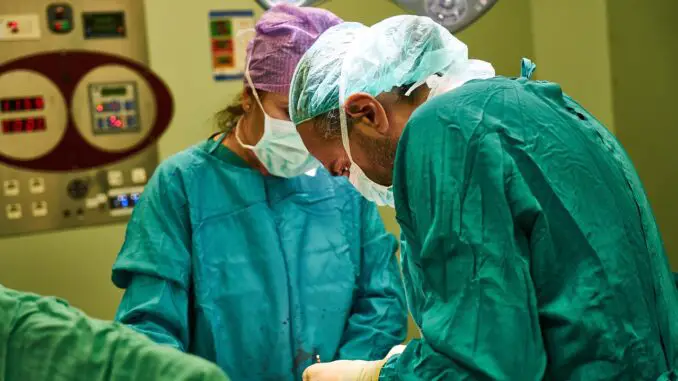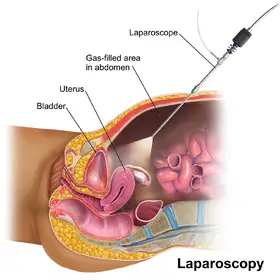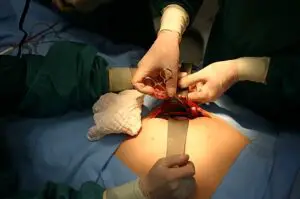
Do you know that 10% to 15% of the adult US population has gallstones? (1) Gallbladder Removal is a surgical procedure to remove your gallbladder. They are usually incidentally discovered during routine checks for other unrelated abdominal conditions for people and the reason is that most gallstone cases are asymptomatic, where you do not experience any signs and the symptoms do not typically require treatment.
SYMPTOMS AND RISK FACTORS OF GALLSTONES
GALLBLADDER is an organ that is closely related to your liver’s functioning. It holds a digestive fluid called _bile_ that is released into your small intestine. GALLSTONES, on the other hand, are lumps of solid material that form in your gallbladder. The formation can be caused by too much cholesterol, and _bilirubin_ (a chemical produced when the body breaks down red blood cells), or not enough bile salts in the bile in the gallbladder.
The presence of gallstones is the most common reason a gallbladder gets surgically removed. It can be detected through other radiology tests that are sometimes used, but the main tool for diagnosing gallbladder disease is ultrasound (2).
Most cases of gallstones do not show symptoms— these are called silent gallstones. In this case, they are not treated and left alone because silent stones do not stop your gallbladder, liver, or pancreas from working. If you are experiencing a gallbladder attack, see a doctor right away. Some symptoms may include:
- Upper mid-abdomen or upper right abdomen pain
- Abdominal discomfort
- Chest pain
- Nausea
- Jaundice (a yellow tint to the skin and eyes)
- Indigestion
Certain people have a higher risk of gallstones than others due to health issues. The factors include:
- OBESITY – Obesity increases bile stasis and cholesterol saturation.
- AGE – For those ages 40 to 69, the risk increases dramatically to 4 times higher than in younger people.
- DIET – Low-fiber diet leads to more cholesterol in the bile and reduced gallbladder emptying. Avoid high-fat, high-cholesterol food.
- DIABETES – This contributes to insulin resistance and increases the risk of gallstones.
- RAPID WEIGHT LOSS – This prevents the gallbladder from emptying properly and causes the liver to secrete extra cholesterol into bile.

GALLBLADDER REMOVAL AND AFTERCARE
If the symptoms of gallstones become significant and unbearable, the doctor will recommend gallbladder removal. Every surgical procedure carries some risk, but gallbladder removal surgery is generally considered safe. In OPEN SURGERY, the surgeon removes the gallbladder through a single, large cut (incision) in the abdomen. The other type is called LAPAROSCOPIC CHOLECYSTECTOMY, performed by inserting a tiny video camera and special surgical tools through four small incisions to see inside the abdomen and remove the gallbladder. Laparoscopic gallbladder removal is most commonly preferred over traditional open surgery as it is minimally invasive and requires a shorter recovery period (3). Recovery typically takes up to three to five days if there are no complications and you will likely be back to your regular routine within two weeks. Although not typical, some may experience digestive problems after gallbladder surgery. Digestive side effects are most often temporary and no treatment is needed. Gallbladder removal surgery time can take time and there are common side effects as your body adjusted to its new system without a gallbladder. These commonly include:
- TEMPORARY OR CHRONIC DIARRHEA – Eating a low-fat diet may help lessen symptoms. But if your diarrhea lasts for more than three days, call your doctor.
- DIFFICULTY DIGESTING FATTY FOODS – Again, eating a low-fat diet may help.
- TEMPORARY CONSTIPATION – Dehydration can make constipation worse, so drink enough water. A diet that is rich in fiber help prevent and perhaps relieve constipation.

LIFE WITHOUT GALLBLADDER
Removing your gallbladder does not necessarily shorten your life expectancy. Your healthier dietary choices and lifestyle post-surgery will even increase it. While your gallbladder does an important job, it is not a vital organ. Removing it does not make your liver stop working— not even your kidneys. Your gallbladder serves as the reservoir for the digestive juice called bile that is secreted by the liver. The bile’s job is breaking down fats, the hardest part of the food to digest. Without your gallbladder, the bile flows directly into the intestine anytime the liver produces it (5). Hence, you can still break down fats in your small intestine. In summary, your body can still function well without your gallbladder, but be mindful of your diet and avoid certain food per your doctor’s advice to prevent digestive issues.
Article Studies, References, and Resources
- Gallstones By Clevelandclinic.org – https://my.clevelandclinic.org/health/diseases/7313-gallstones
- Gallbladder Imaging Interpretation Pearls and Pitfalls: Ultrasound, Computed Tomography, and Magnetic Resonance Imaging By Sergio P. Kilmkowski MD – https://www.sciencedirect.com/science/article/abs/pii/S0033838922000628
- The role of laparoscopic staging in patients with incidental gallbladder cancer By Jean M Butte https://www.ncbi.nlm.nih.gov/pmc/articles/PMC3133713/
- Everything you need to know about gallstones By Alana Biggers M.D. MPH https://www.medicalnewstoday.com/articles/153981
- Living Without a Gallbladder By Healthgrades.com – https://www.healthgrades.com/right-care/gallbladder-removal-surgery/living-without-a-gallbladder


Link exchange is nothing else however it is just
placing the other person’s website link on your page at proper place and other person will also do same in support
of you.
Howdy! Do you know if they make any plugins to
safeguard against hackers? I’m kinda paranoid about losing everything I’ve worked hard on. Any tips?
Great blog right here! Additionally your website a lot up very
fast! What web host are you the use of? Can I am
getting your affiliate link for your host? I wish my website
loaded up as quickly as yours lol
Have you ever considered writing an e-book or guest authoring on other blogs?
I have a blog based on the same subjects you discuss and would love to have you share some stories/information. I know my visitors would appreciate your work.
If you are even remotely interested, feel free to send me an e mail.
Fantastic goods from you, man. I have understand your stuff
previous to and you’re just extremely fantastic. I really like what you have acquired here,
certainly like what you are stating and the way in which you say
it. You make it enjoyable and you still take care of to keep it
wise. I cant wait to read far more from you. This is
actually a tremendous site.
Hey there! I know this is kinda off topic however I’d figured I’d ask.
Would you be interested in trading links or maybe guest authoring a blog article or vice-versa?
My blog addresses a lot of the same subjects as yours and
I think we could greatly benefit from each other.
If you are interested feel free to shoot me an email. I look forward to hearing from you!
Terrific blog by the way!